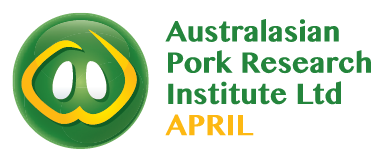
Abel received his BEng (Chemical, Honours) in 2005 by the Jaume I University (Spain), and his MEng and PhD (Electronic, Magna Cum Laude) by the Rovira i Virgili University (Spain) in 2007 and 2011, respectively. Currently, he is a Senior Lecturer at The University of Adelaide’s School of Chemical Engineering and Advanced Materials, where he teaches and leads a small, dynamic research group working at the interface of advance materials engineering, applied photonics, photocatalysis, and optical sensing and biosensing.
A major priority for the Australasian pork industry is the continuous improvement of animal welfare. In order to achieve these priorities rapid, repeatable and objective measures of animal welfare are needed. With the support of APRIL (project A1-106, A lab on a chip for real time pain and animal welfare biomarker measurement), Abel’s team is conducting cutting edge research into lab-on-a-chip sensing technology. This technology uses an innovative combination of materials science, engineering and applied photonics, which potentially is capable of monitoring a suite of animal welfare biomarkers to ultimately assist with the production and management of livestock on farms.
